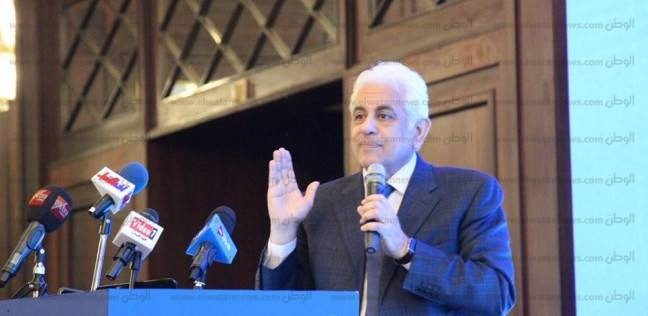In my first article on the development of democracy in human history, and my initiative on finding a new form for the practice of peoples’ participation in governing themselves, in an era in which the inputs of life and political work have changed, we came to the conclusion that the third generation of democracy, which respects the values of freedom and humanity, and practices governance in managing the country, He also failed to achieve his goals.
We have four years ahead of us, after which the rule of President El-Sisi ends in 2022, and the transitional period led by the hero who implemented the will of the people and the Egyptian army saved the country from a religious fascist rule that would have applied to the necks and minds of Egyptians will end. The task of the current government is to establish the sustainability of the development path for the great Egypt, not depending on an individual but on a sustainable system, the transfer of power with the free will of the voters, and respect for the balance of power within the Egyptian society, while not allowing the state to hypocrisy mobs and factional interests at the expense of the vision of the future, or the dictatorship of any class of social classes.
After the article was published last Wednesday in Al-Masry Al-Youm, I received dozens of messages. As I promised, before moving on to formulating the initiative in its final form on fourth-generation democracy, with the aim of good governance, I present to the reader some interventions, which express, in different ways, opinions.
Most of the interventions talked about education, knowledge and awareness as a basis for implementing democracy, and it is a diagnosis of reality and not a proposal for solutions. Many have talked about the balance between powers to prevent the dictatorship of any ruling class, which is what the constitution recognizes, but it does not happen in most or all of the poor developing countries because free elections do not bring in these countries the best elements capable of monitoring the executive authority with knowledge and objectivity without demolition or corruption.
Most talked about the initiative’s inclusion of protecting the constitution from amending articles determining the term of the presidency, because the transfer of power is inevitable to protect democracy. Many have written about the importance of an independent judiciary and prompt justice in stabilizing the pillars of the state system without selectivity or subordination.
One of the entries said:
“The reality is that the public, and the ignorant, will bring councils similar to them in thought and the country will end up in chaos, and the public will be hypocritical, without vision or commitment to the rules of governance. You may have seen what happened after 2011 when the public ruled life and more than a million government employees were appointed to satisfy the demonstrations without their need. The tragedy is that the educated elite, as they are called, become corrupt when they are in control. I do not know what the solution is, and perhaps your initiative will provide us with practical solutions.”
Few presented a method for implementation, not just theoretical imperatives, which confirmed in my sentiments the importance of continuing dialogue so that what we say matches what we do, such as the return of the two-chamber system in Parliament to ensure the presence of knowledge and wisdom in one of them, and the balance of political forces in oversight and legislation. Some presented different electoral systems to ensure optimal representation of the people. In my opinion, it is one of the topics that should be reviewed and re-discussed.
Here is an important statement:
“The most important question remains: Who are the candidates and who are the voters? Are both of them qualified to play their imposed role? .. There is no doubt that this varies greatly from one society to another according to the levels of education and awareness in general, and this is the major dilemma that you must solve in your national initiative.”
One of the citizens says:
“To achieve good governance, we need societal maturity, the rebuilding of man and his societal values, and the balance between his rights and duties. The responsibility, sir, is borne in practice by two main parties: the state, with its tools, and civil society development institutions.
Next week – a message from America
 Dr. Hossam Badrawi Official Website
Dr. Hossam Badrawi Official Website


